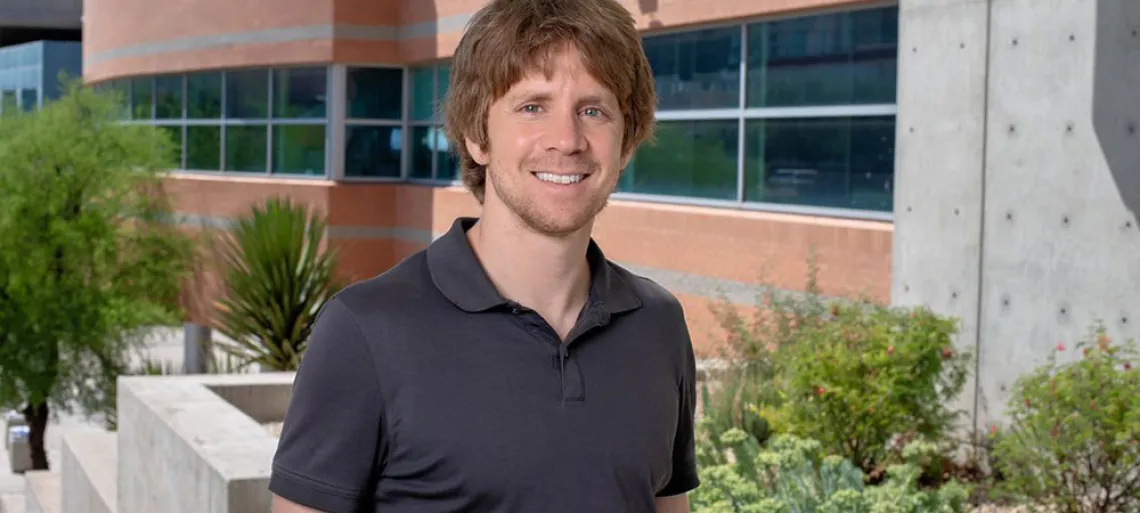Eller Economics Professor Talks Heat and Economics

Derek Lemoine, associate professor of economics in the Eller College of Management, was featured in an August 11 BYUradio segment on Heat and Economics.
The segment explains that just as people tend to feel more sluggish when the weather is exceptionally warm, the same goes for the economy.
“The average summer temperature strongly affects output—the total measure of goods and services produced from the economy—from different U.S. states,” says Lemoine. “We can see that years that tended to have a hotter than average summer had a lower-than-average output in some states.”
Lemoine points out that certain sectors could be affected more than others—construction work could be more affected than office work—because people tend to supply less work when it is very hot out, typically in the middle of an extreme heatwave. “People might work fewer hours when it is extremely hot because they will substitute it with indoor leisure,” says Lemoine. “Causing an economy’s output to be lower.”
Lemoine joined the Eller College of Management in 2011 after earning his PhD in Energy and Resources from the University of California, Berkeley. In addition to teaching at Eller, he is also a research associate for the National Bureau of Economic Research and an associate fellow for the Centre for Economic Policy Research (CEPR) in the Climate Change Research and Policy Network. His areas of expertise include environmental and energy economics, climate change, technological change and decision-making under uncertainty and over time. His current research combines economic theory and computational methods to better understand the dynamics of optimal environmental policy and of energy systems. He is a member of the American Economic Association, the Association of Environmental and Resource Economists and the Econometric Society.

